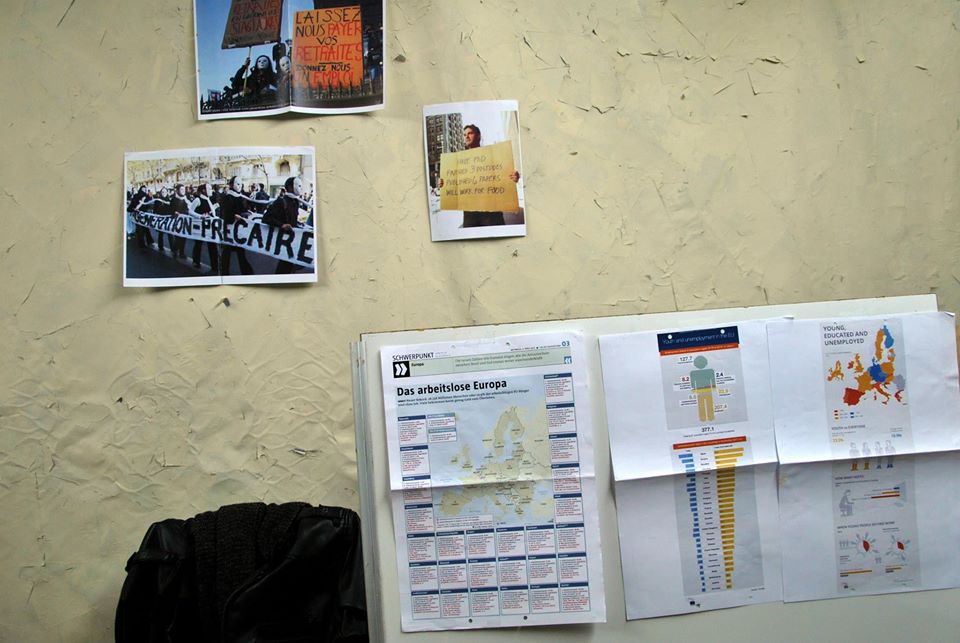A new participatory rating agency for programmes of candidates to the European elections.
The project AAA: “Act-up Agora Agency” aims to spark debate on parties’ programmes and manifestos for the European elections thanks to a ‘participative rating agency of programmes’. This agency will consist of the assembly of citizens who will participate in the final debate in Lyon next April, and possibly in other European cities. Playing on the feeling of lack of political choice (as the title suggests), and symbolising largely the power of rating agencies such as the well-known AAA in France, the project aims to engage European citizens in France (French or European from member states) within the debate beyond the usual suspects and within the context of the European year of citizens. It aims to allow a dialogue on Europe, its objectives, its means and its vision for the future between citizens who do not define themselves as pro-European and their representatives, in order to build a debate around the upcoming European Parliament elections and their role. The objective is to favour the exchange of ideas on the European project so as to allow the stakes of the European elections to emerge with clarity, notably with regards to first-time voters among the youth. Finally, the aim is also to encourage citizens to develop proposals for Europe and to participate actively to the development of alternatives.
The project is made up of the studying of the programmes and of a participatory debate.
- In a first moment (January and February) the working group which will analyse the manifestos will be formed.The group will meet in Lyon on February 22 and 23 (dates to be confirmed) and will define the central question on which the manifestos will be analyzed (for example youth policy, employment, ecology, security, energy, solutions to the crisis, etc.). They will establish an analysis scheme of the programs and manifestos of the European parties with the May elections of the European Parliament in sight and according to their positions (or lack of) on the central question defined beforehand by the young participants. Numerous examples of candidate ratings will inspire the elaboration of the evaluation criteria and the analysis format, such as the example of the candidate ratings of the French presidential elections of 2012 elaborated by Transparency International France (on the ethics of public life), SOS Homophobia (on the rights of LGBT people), or Génération Précaire (on youth policies). This research and analysis will allow for informed and constructive debates on the European Union throughout the project.
- In a second moment (April 2014) a participatory debate will be organized in Lyon based on the analysis of the party programs and the themes of the election campaigns, during which participants and key actors will compare the proposals of the parliamentarian candidates and will be invited to compare their political choices and/or elaborate proposals on alternatives. The group of participants will then discuss and take a position with regards to the candidate proposals, thus becoming the ‘national rating agency’ of the parties and elaborating a vision of the EU they hope to live in. European parliamentarians (from the relative French constituencies but also from other EU countries) and the candidates to the European Parliament (EP) elections will be invited to attend and exchange views with the public and to react to social issues by explaining how their election to the EP would make a difference: a debate on ACTA, the fiscal pact, the parliamentarian budget, migrant rights in Europe, etc. Both throughout and at the closing of the debate, participants among the public will be encouraged to comment on themes central to the parliamentary elections.
Finally, prior to the EP elections, a journal presenting the results of the citizen rating agency AAA will be published, and will compare different party proposals relevant to the theme of the debate.
This text is attributable only to its author; the Administration of the Ministry of Foreign Affairs and the European Commission are not responsible for the use of the information contained in this text.

Countries Involved
France and 5 participants from other European Countries
Duration of Project
December 2013 - June 2014